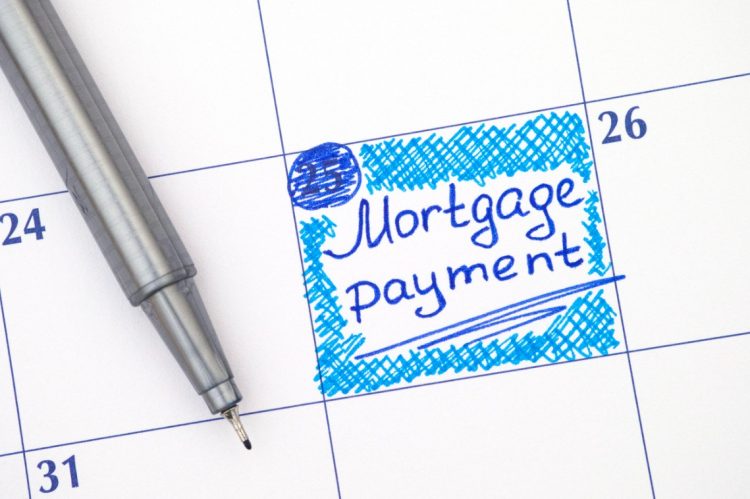Paying off a mortgage is a momentous financial achievement. It can happen during the process of selling a home or before. During a sale, homeowners often ask me when they should stop paying a mortgage.
My guide will walk you through the entire process, from understanding your mortgage terms to updating your records. I will also explore the pros and cons of paying off a mortgage early, as advised by financial experts, and address common questions about the process, penalties and benefits.
I will provide the following information to ensure the process goes smoothly:
- Detailed steps for paying off a mortgage early or on time.
- Insights from financial advisors on the advantages and disadvantages of early mortgage payoff.
- Answers to common questions about mortgage payoff, penalties and benefits.
Let’s begin with the essential steps to achieving mortgage freedom.
Steps for paying off a mortgage
1. Understand your mortgage terms
Before making any plans to pay off your mortgage, it’s crucial to understand the specific terms of your loan. Here’s what to focus on:
- Interest rate: Know whether you have a fixed or adjustable interest rate. This will affect your remaining payments.
- Loan balance: Understand how much principal remains on your loan. This is the base amount you’ll need to pay off.
- Prepayment penalties: Some mortgages include penalties for paying off the loan early. These can be a percentage of the loan amount or a specific number of months of interest. Understanding these penalties is vital in planning your payoff strategy.
- Amortization schedule: Review your schedule to see how much each payment goes toward principal versus interest. This will show you how much you’ll save in interest by paying off the mortgage early.
I recommend reviewing these terms to ensure you’re fully informed about your financial obligations and any potential costs associated with early payoff.
2. Calculate your payoff amount
The payoff amount differs from your remaining loan balance. It includes the outstanding principal, accrued interest and any additional fees.
Here’s how to determine your payoff amount:
- Contact your lender: Contact your mortgage servicer to request an official payoff statement. This document details the amount required to repay the loan on a specific date.
- Include all fees: Ensure the payoff amount includes any late fees, prepayment penalties, or other charges that might apply.
- Account for accrued interest: Interest accrues daily, so the amount you owe may increase slightly each day until the loan is paid off. Your lender will provide a breakdown of how interest is calculated up to the payoff date.
You can avoid shortfalls that might delay the process by getting an accurate payoff.
3. Choose a payoff date
Choosing a suitable payoff date is crucial for a smooth process. Here’s what to consider:
- Synchronize with your payment cycle: Schedule your payoff date close to your regular mortgage payment date. This reduces the amount of accrued interest you’ll owe.
- Ensure fund availability: Ensure you have sufficient funds in your account before the payoff date. Some banks may have a hold period on large transfers, so plan accordingly.
- Avoid delays: The transaction may be delayed if your payoff date falls on a weekend or holiday. Aim for a weekday to ensure timely processing.
By carefully selecting a payoff date, you can minimize interest and ensure a seamless payoff process.
4. Make your final payment
Making the final payment involves more than just transferring funds. Here’s how to ensure it goes smoothly:
- Follow payment instructions: Adhere to the lender’s final payment instructions. This may include wiring funds or mailing a cashier’s check.
- Confirm receipt: After making the payment, confirm with your lender that it has been received and applied correctly.
- Get a receipt: Obtain written confirmation of the payment for your records. This document is crucial if any disputes arise later.
This step officially closes your mortgage account, freeing you from monthly payments and long-term debt obligations.
5. Obtain a satisfaction of mortgage statement
Many clients have asked me what happens to the mortgage when selling.
Once your final payment is processed, your lender will issue a Satisfaction of Mortgage statement. This document is essential for the following reasons:
- Proof of payment: The Satisfaction of Mortgage statement legally proves that you have fully paid off your loan.
- Releases lien on property: It confirms that the lender no longer holds a lien on your property, effectively giving you full ownership.
- Required for public records: This document is typically filed with your county’s recorder of deeds office. Ensure your lender files this or provides you with the necessary paperwork. Your real estate attorney can help with this.
This step finalizes the payoff process and ensures your property title is clear of any lender claims.
6. Update your records
After the mortgage is paid off, you must update your property records. Here’s how:
- Contact your local government: Contact your county’s recorder of deeds or property records office to confirm that the Satisfaction of Mortgage has been recorded.
- Update your insurance: Notify your homeowner’s insurance company that you’ve paid off the mortgage. Your policy may need to be adjusted to reflect the change in ownership status.
- Review your estate plan: If your estate plan involves your property, update any related documents, such as your will or trust, to reflect the mortgage payoff.
Completing these steps ensures that your records accurately reflect your ownership status and have no lingering issues.
Pros and cons of paying off a mortgage early
Paying off a mortgage early can be attractive, but it has drawbacks. Financial advisors weigh in on the pros and cons:
Pros:
Interest savings:
- By paying off your mortgage early, you significantly reduce the total interest paid over the life of the loan. This can amount to tens of thousands of dollars in savings, depending on your loan’s interest rate and remaining term.
Financial freedom:
- Eliminating your monthly mortgage payment frees up cash for other financial goals, such as retirement savings, investments, or leisure activities. Without the burden of a mortgage, you have more disposable income and flexibility in your financial planning.
Peace of mind:
- Many people find psychological comfort in being debt-free. Paying off your mortgage can provide security, knowing that your home is fully paid for and you’re no longer obligated to a lender.
Cons:
Reduced liquidity:
- Paying off your mortgage before it is due involves significant money in your home’s equity. This means less cash available for emergencies or investment opportunities that may offer higher returns.
Opportunity cost:
- If invested elsewhere, the money used to pay off your mortgage could yield higher returns. For instance, if your mortgage interest rate is lower than the average return on investments like stocks, it might be more profitable to invest rather than pay off the mortgage.
Potential tax implications:
- Mortgage interest is tax-deductible in many cases, reducing your taxable income. Paying off your mortgage eliminates this deduction, which could result in a higher tax bill. It’s essential to consider how this might affect your overall tax strategy.
Conclusion
Paying off your mortgage is a significant financial decision that requires careful planning and considering the potential benefits and drawbacks. Understanding each process step, from reviewing your mortgage terms to updating your records, is essential for a smooth payoff experience.












